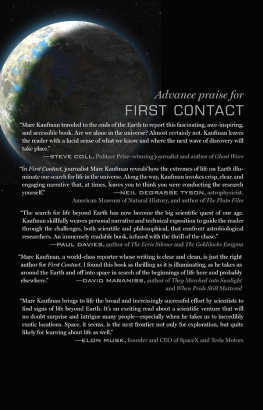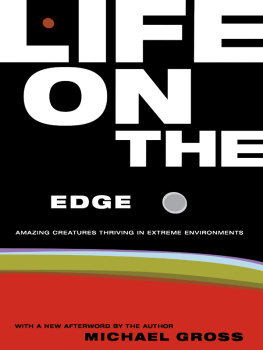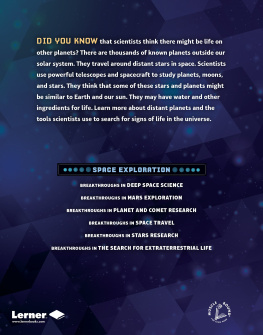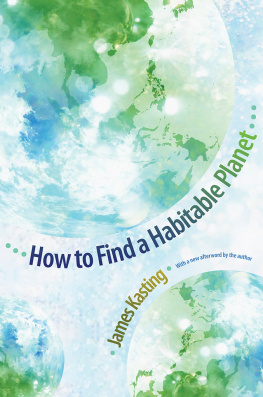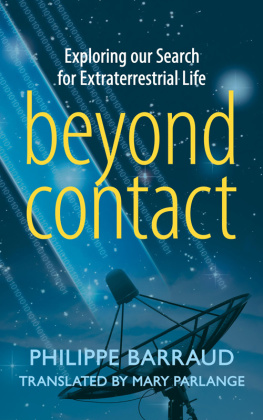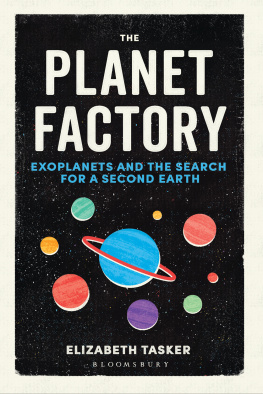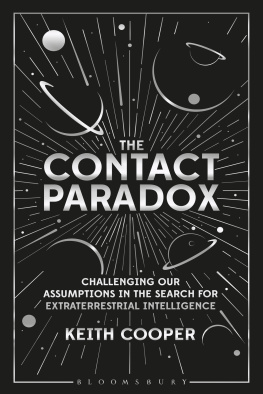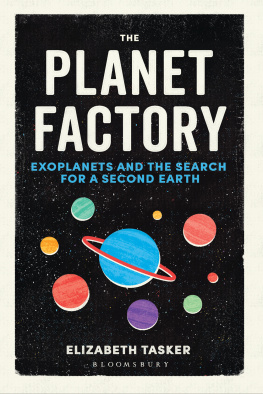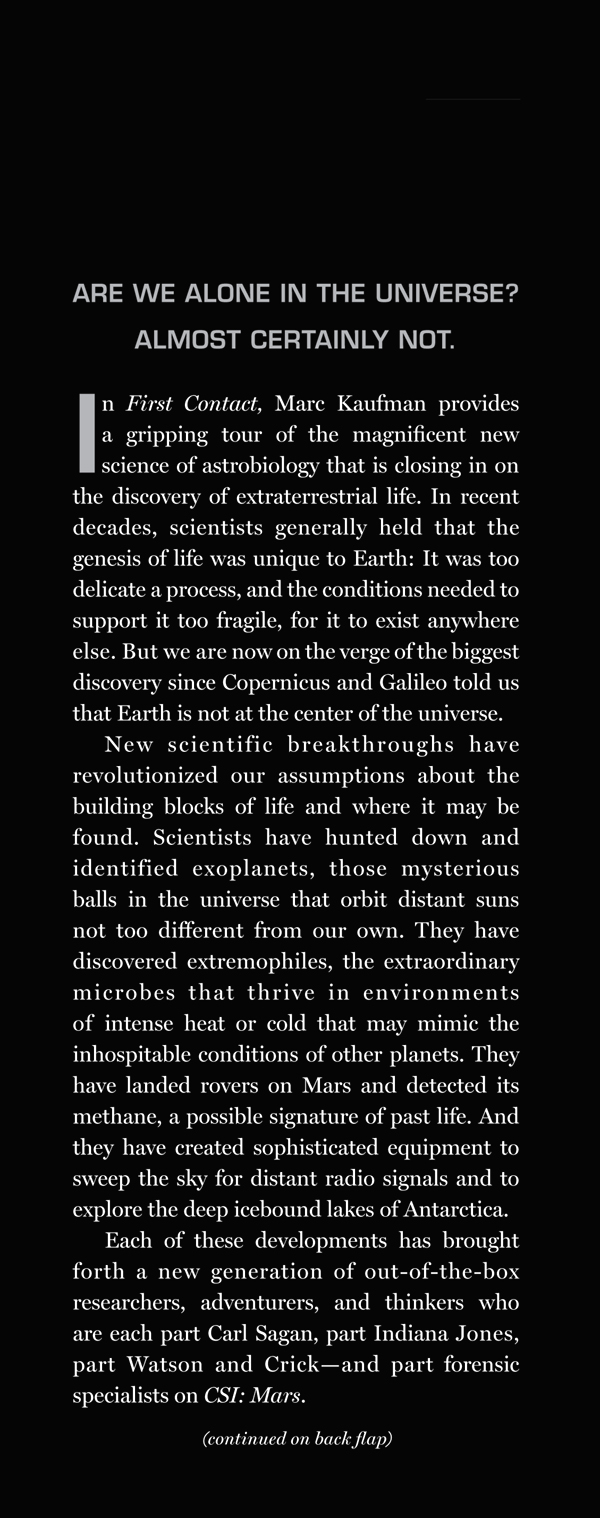



| Simon & Schuster
1230 Avenue of the Americas
New York, NY 10020
www.SimonandSchuster.com |
Copyright 2011 by Marc Kaufman
All rights reserved, including the right to reproduce this book or portions thereof in any form whatsoever. For information address Simon & Schuster Subsidiary Rights Department, 1230 Avenue of the Americas, New York, NY 10020
First Simon & Schuster hardcover edition April 2011
SIMON & SCHUSTER and colophon are registered trademarks of Simon & Schuster, Inc.
The Simon & Schuster Speakers Bureau can bring authors to your live event. For more information or to book an event, contact the Simon & Schuster Speakers Bureau at 1-866-248-3049 or visit our website at www.simonspeakers.com .
Designed by Nancy Singer
Manufactured in the United States of America
10 9 8 7 6 5 4 3 2 1
Library of Congress Cataloging-in-Publication Data
Kaufman, Marc.
First contact : scientific breakthroughs in the hunt for life beyond Earth / Marc Kaufman.1st Simon & Schuster hardcover ed.
p. cm.
1. Life on other planets. 2. Habitable planets. I. Title.
QB54.K38 2011
576.8'39dc22 2010044630
ISBN 978-1-4391-0900-7
ISBN 978-1-4391-3030-8 (ebook)
To Lynn Litterine, the brightest star in this mans galaxy.
CONTENTS
FIRST CONTACT
THE BIGGEST DISCOVERY OF THEM ALL
If its just us in this universe, what a terrible waste of space.
But its not. Before the end of this century, and perhaps much sooner than that, scientists will determine that life exists elsewhere in the universe. This book is about how theyre going to get there. And when they do, that discovery will rival the immensity of those that launched our previous scientific revolutions and, in the process, defined our humanity. Copernicus and Galileo told us we were not, after all, at the center of the universe, and their ideas fathered a scientific astronomy that, four hundred years later, is allowing us to be a space-faring planet. Charles Darwin gave us our evolutionary roots, which, a century later, propelled Louis and Mary Leakey on a thirty-year search culminating in the recovery of fossil hominid remains almost two million years old in Tanzanias Olduvai Gorgeproof that humankind began in Africa. So here we are now, the descendants of the skilled toolmakers and explorers who left the continent some sixty to seventy thousand years ago. Weve populated the globe and sent astronauts to the moon. Next up: Life beyond Earth.
For thousands of years, humans have wondered about who and what might be living beyond the confines of our planet: gods, beneficent or angry, a heaven full of sinners long forgiven, creatures as large and strange as our imagination. Scientists now are on the cusp of bringing those musings back to Earth and recasting our humanity yet again. Astrobiology is the name of their young but fast-growing field, which immodestly seeks to identify life throughout the universe, partly by determining how it began on our planet. The men and women of astrobiologyan iconoclastic lot, quite unlike the caricatures of geeks in white lab coats or UFO-crazed conspiracy theoristsare driven by a confidence that extraterrestrial creatures are there to be found, if only we learn how to find them. Most hold the conviction that if a form of independently evolved life, even the tiniest microbe, is detected below the surface of Mars or Europa, or other moons of Jupiter or Saturn, then the odds that life does exist elsewhere in our galaxy and potentially in billions of others shoot up dramatically. A solar system that produces one genesisoursmight be an anomaly. A single solar system that produces two or more geneses tells us that life can begin and evolve whenever and wherever conditions allow, and that extraterrestrial life may well be an intergalactic commonplace.
With goals so enormous and compelling, astrobiology has brought forth a new generation of outside-the-box researchers, field scientists, adventurers, and thinkerspart Carl Sagan, part Indiana Jones, part Watson and Crick, part CSI: Mars . They are men and women who drop deep below the surface of the Earth or tunnel into Antarctic glaciers in search of life in the most extreme places, who probe volcanoes for clues into how Earthly life began, who propel life-detecting robots and ultimately themselves into space. They come up with ever more ingenious methods for detecting planets that circle distant suns; they scour our planet for Mars- or Europa-like habitats they can minutely study for the life-supporting conditions they might encounter when our spaceships arrive there. They probe the cosmos as far as 13 billion light-years away for signs of the earliest stirrings of the order and chemistry that created life on Earth. Some are even working to define and understand life by creating it in the lab. Theyve harnessed that childhood excitement so many of us felt when, on hot, hard-to-sleep summer nights, we tried to imagine what it would be like to visit Mars (very dry), or travel to the end of the universe (very confusing), be around when life first began (very lonely), or come across extraterrestrial life (very exciting). The world has changed enough that today, a large and growing number of scientists are earning their livelihoods turning their imaginings into hypotheses and putting them to tests inconceivable even a decade ago.
Why now? Why does the promise of cracking the extraterrestrial barrier seem close enough that so many prominent scientists from NASA to the Massachusetts Institute of Technology, from the Carnegie Institution of Washington to Princeton and Cambridge universities, have decided to ignore the giggle factor associated with UFOs and ET and join the quest? The answer, put broadly, is that the field is getting results.
In the past ten years we have found that hundreds of planets orbit distant suns not too different from our own and can reasonably infer that billions more exist. Many are bound to be rocky planets in eminently habitable zones the right distance from stable suns to give life a chance. More than five hundred of these exoplanets (exo because they orbit suns other than our own) have already been identified and even more new ones are being discovered every week. In the past two decades, we have also explored a vast world of microbial extremophiles that live in Earthly environments once assumed to be incapable of supporting lifefindings that make it easier to hypothesize that life survives in uninhabitable conditions on other planets and moons, too.
Extremophile research started with microbes living in hot springs like Yellowstone and near deep underseas black smoker thermal vents that are even hotter. Each year scientists reach further and almost always get resultsfinding life miles underground, encased in ice, or bathed in acid. A very different group of researchers is also getting closer to synthesizing something akin to life in the lab, research that sets the stage for an understanding of how life might have started on Earth and elsewhere. One of those labs will soon have produced self-replicating genetic material out of nonliving component partsin other words, created something very life-like from synthesized genetic material. And planetary scientists are finding ever more reason to conclude that Mars in particularwritten off as lifeless thirty years ago, after NASAs Viking missionshas, or had in the past, most everything necessary to support life: liquid water, carbon compounds, nutrients, and a minimally protective atmosphere. In 2009, the life-on-Mars theory got a major boost with the confirmed discovery of methane gas in its atmosphere. On Earth, 90 percent of methane is produced through biology.
Next page
